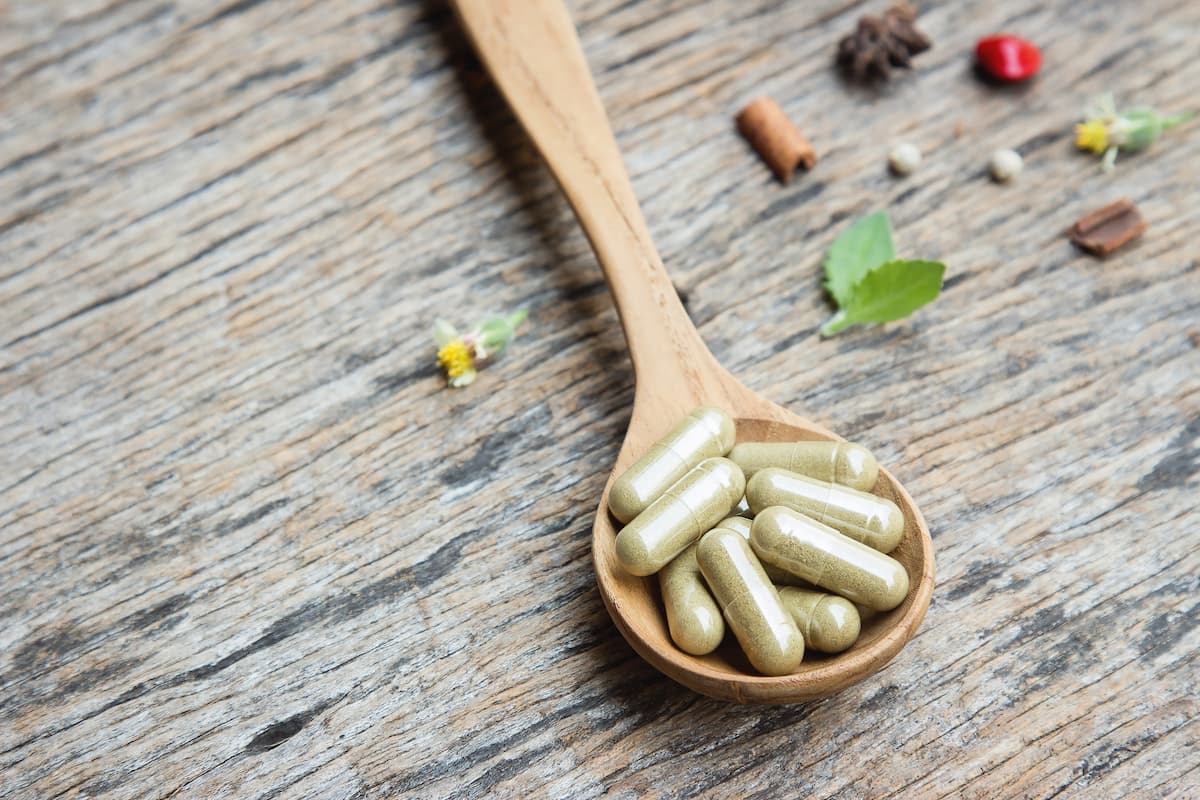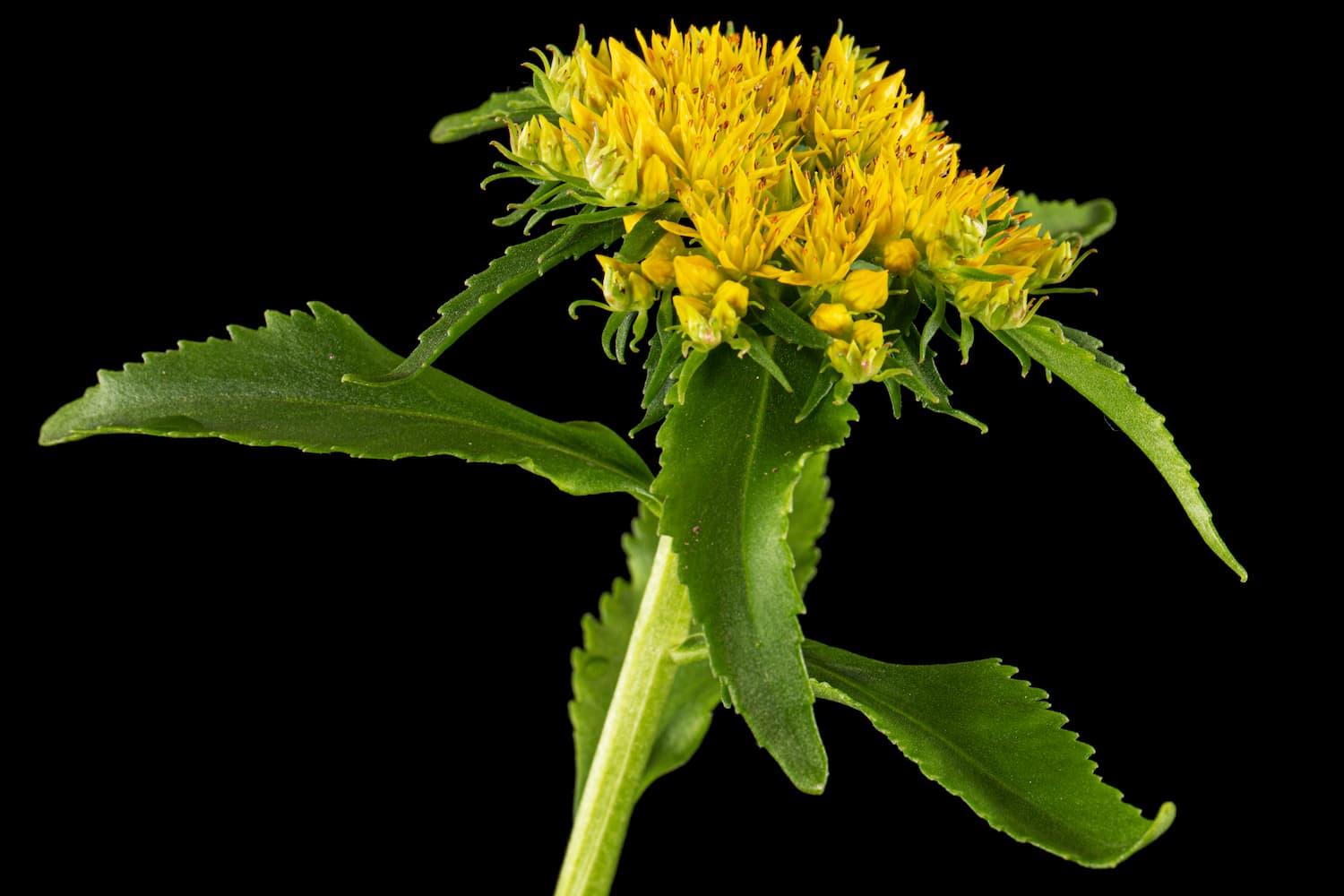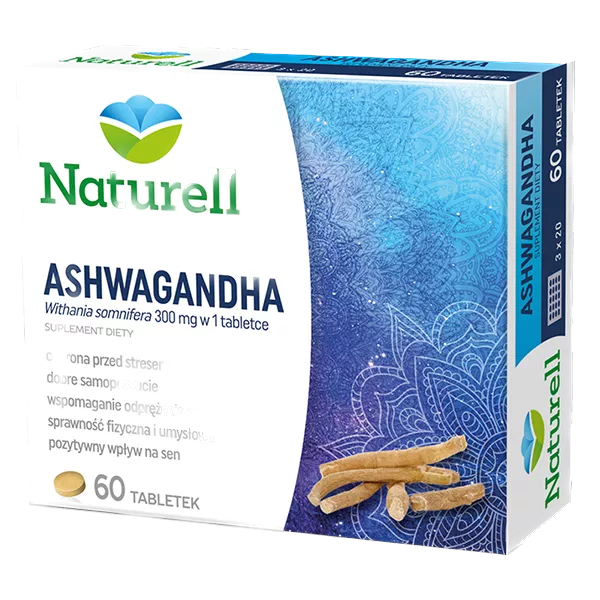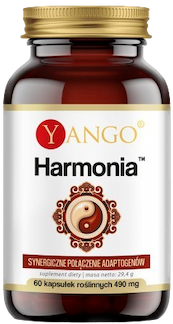Ashwagandha side effects (from potential headaches and migraines to nausea)
The use of ashwagandha can cause some side effects, but some can be cleverly avoided.


Learn more about our editorial process
.

Learn more about our editorial process
.

Learn more about our editorial process
.

Learn more about our editorial process
.
Why you can trust us
Articles on Natu.Care are written based on scientific research, data from government websites and other reliable sources. The texts are written in cooperation with doctors, nutritionists and other health and beauty experts. Articles are reviewed before publication and during significant updates.
.Learn more about our editorial process
.Information about advertisements
Content on Natu.Care may contain links to products from the sale of which we may receive a commission. When creating content, we adhere to high editorial standards and take care to be objective about the products discussed. The presence of affiliate links is not dictated by our partners, and we select the products we review ourselves completely independently.
.Learn more about our terms and Conditions
.The use of ashwagandha can bring many benefits. Unfortunately, sometimes instead of a gentle surge of ayurvedic power, you feel an oncoming typhoon from your digestive system.
Some side effects can be avoided and I will tell you how. Others, unfortunately, will force you to look for other plants with interesting properties for health.
From this article you will learn:
- What are the side effects of using ashwagandha.
- What are the side effects of ashwagandha?
- Whether they can be prevented.
- How to minimise the risk of side effects.
- How to minimise the risk of side effects.
- What are the effects of ashwagandha.
See also:
- Ashwagandha
- Ashwagandha contraindications
- Ashwagandha - morning or night?
- Ashwagandha - when does it start working?
- Ashwagandha - dosage
- What not to combine ashwagandha with?
- Indian ginseng
- Adaptogens
Ashwagandha - side effects
The use of ashwagandha can cause side effects such as :
- bad mood,
- abdominal pain,
- nausea,
- vomiting,
- diarrhoea,
- headache,
- rash,
- insomnia, insomnia, nightmares,
- thyroid dysfunction,
Side effects usually occur when using high doses (>1000 mg of extract) not in accordance with the manufacturer's recommendations. Supplementation for too long (>12 weeks) can also cause side effects .
Also, some side effects may be related to the occurrence of interactions between ashwagandha and medicines .
The side effects should pass after discontinuation. If they nevertheless persist over the next few days, you should see your doctor, especially if you have used high doses for a long time.

Kacper Nihalani doctor
After all, it's just a plant...
Yes, ashwagandha it's a plant, but it's not a carrot or celery. It's a powerful adaptogen, rich in alkaloids, that can have a huge impact on your body's performance. Thanks to alkaloids, or compounds with high biological activity, ashwagandha can affect the functioning of the nervous system, endocrine system and even affect mood .
Adaptogens are a group of natural plant substances that help the body adapt to and cope with various forms of stress, both physical and psychological.
When are the side effects gone?
When the negative side effects disappear depends on:
- tolerance to this plant,
- the size of the daily portions,
- time of use,
- metabolism,
- drugs and other dietary supplements used,
If side effects (from the gastrointestinal tract, drowsiness or malaise) appear immediately - this is probably not the plant for you. If you are very keen on using it, try reducing the daily dose (a daily dose of1 tablet/capsule may be an issue). Give yourself 2-3 days and if the symptoms do not go away let go or consult your doctor.
If a rash appears, it is an allergic reaction and is a clear indication that ashwagandha is bad for you. A doctor should be consulted immediately, especially if swelling and itching also appear.

Kacper Nihalani doctor
Remember
Swelling, respiratory problems and a swollen tongue are symptoms of anaphylactic shock and you need to go to the ED or call an ambulance immediately.
Some side effects may appear after time, most commonly when you use high doses (above the manufacturer's recommendations) for a long time (>12 weeks). Some scientific studies suggest that ashwagandha may interfere with the thyroid gland, which is particularly dangerous in cases of hyperthyroidism.
Therefore, if you have a thyroid condition, consult your doctor before taking ashwagandha and have regular blood tests, checking thyroid hormones.
Is ashwagandha safe?
Yes, ashwagandha is safe if you take it for no longer than 12 weeks and if you do not exceed the manufacturer's recommended daily dose. This way of consuming extracts or infusions of this plant is considered safe and has been used in scientific studies .
It is also important to familiarise yourself with contraindications before supplementation, which include the presence of certain medical conditions and the use of certain groups of medications .
Ashwagandha Naturell
Product description
Extract from ashwagandha leaves and root will boost energy, overcome fatigue, improve memory and concentration. The product is recommended during periods of increased physical tension or intense physical activity.
Pros and cons
Extract from ashwagandha leaves and root will boost energy, overcome fatigue, improve memory and concentration. The product is recommended during periods of increased physical tension or intense physical activity.
Additional information
Extract from ashwagandha leaves and root will boost energy, overcome fatigue, improve memory and concentration. The product is recommended during periods of increased physical tension or intense physical activity.
Dr. Jacob's Strong Nerves
Product description
Dr. Jacob's Strong Nerves is a dietary supplement thatóry supports the nervous system and helps the body to cope with stress. Thanks to the synergistic combination of beneficial ingredientsós, Strong Nerves relieves anxiety symptoms, increases mental and physical stamina, and supports concentration.
The benefits of this supplement are particularly important for peopleóly exposed to chronic stress, those with sleep problems or employeesóly. It is worth mentioning that the supplement can also help to improve mental well-being and support the immune system.
.All this makes Dr. Jacob's Strong Nerves an excellent remedy for anyone looking for comprehensive support for their nervous system and overall mental performance.
Pros and cons
Dr. Jacob's Strong Nerves is a dietary supplement thatóry supports the nervous system and helps the body to cope with stress. Thanks to the synergistic combination of beneficial ingredientsós, Strong Nerves relieves anxiety symptoms, increases mental and physical stamina, and supports concentration.
The benefits of this supplement are particularly important for peopleóly exposed to chronic stress, those with sleep problems or employeesóly. It is worth mentioning that the supplement can also help to improve mental well-being and support the immune system.
.All this makes Dr. Jacob's Strong Nerves an excellent remedy for anyone looking for comprehensive support for their nervous system and overall mental performance.
Additional information
Dr. Jacob's Strong Nerves is a dietary supplement thatóry supports the nervous system and helps the body to cope with stress. Thanks to the synergistic combination of beneficial ingredientsós, Strong Nerves relieves anxiety symptoms, increases mental and physical stamina, and supports concentration.
The benefits of this supplement are particularly important for peopleóly exposed to chronic stress, those with sleep problems or employeesóly. It is worth mentioning that the supplement can also help to improve mental well-being and support the immune system.
.All this makes Dr. Jacob's Strong Nerves an excellent remedy for anyone looking for comprehensive support for their nervous system and overall mental performance.
Solve Labs Brain Tech Memory & Focus, adaptogens, capsules

- Composition: bacopa monieri, gotu kola, rhoiola rosea, ginseng, zinc gluconate, choline, vitamin B6
- Form: capsules .
- Packaging: 30 or 60 capsules .
- Dose: 2 capsules daily .
- Sufficient for: 10 or 20 days .
Product description
Adaptogens, vitamins and minerals to support the mózg and nervous system. Brain Tech has been developed for people needing long-lasting concentration, improved learning ability, memory and increased resistance to stress.
Pros and cons
Adaptogens, vitamins and minerals to support the mózg and nervous system. Brain Tech has been developed for people needing long-lasting concentration, improved learning ability, memory and increased resistance to stress.
Additional information
Adaptogens, vitamins and minerals to support the mózg and nervous system. Brain Tech has been developed for people needing long-lasting concentration, improved learning ability, memory and increased resistance to stress.
Adaptogens, vitamins and minerals to support the mózg and nervous system. Brain Tech has been developed for people needing long-lasting concentration, improved learning ability, memory and increased resistance to stress.
YANGO, Harmony, adaptogens, capsules
Product description
This dietary supplement contains a synergistic combination of 5 plant extracts that positively influence the body's homeostasis and well-being. The product is recommended for people living under stress, tension and those who are physically active.
Pros and cons
This dietary supplement contains a synergistic combination of 5 plant extracts that positively influence the body's homeostasis and well-being. The product is recommended for people living under stress, tension and those who are physically active.
Additional information
This dietary supplement contains a synergistic combination of 5 plant extracts that positively influence the body's homeostasis and well-being. The product is recommended for people living under stress, tension and those who are physically active.
Product tiles contain affiliate links.
Does ashwagandha harm the liver?
Yes, ashwagandha can harm the liver, as described by several cases of patients who developed damage to this organ. The researchers' work suggests that taking ashwagandha for longer than 12 weeks in high doses (>450 mg) may negatively affect the liver .
Example case reports of liver damage:
- In 2021, German researchers presented the case of a 40-year-old man who experienced acute liver damage after taking ashwagandha. He had consumed ashwagandha extract (500 mg) for more than a year, then changed to a 450 mg preparation. After 20 days of taking it, he developed jaundice, pruritus and elevated transaminases (liver enzymes) .
- In 2021, the pages of the Journal of the Royal College of Physicians of Edinburgh Ireland described the case of a 39-year-old woman who was admitted to hospital with a week-long history of nausea and jaundice after taking an herbal product containing ashwagandha root extract (it was not stated how much). Initial investigations showed elevated liver enzyme levels. A liver biopsy was performed, which confirmed acute cholestatic hepatitis with subcutaneous necrosis .
- Polish researchers in 2023 published a case report of a patient who developed liver damage, possibly due to excessive consumption of ashwagandha . Details of supplementation were not described.
Ashwagandha used in excess stimulates a reduction in cellular glutanion levels, which translates into cytotoxicity (the ability to destroy cells) and this may explain the causes of liver damage caused by its consumption.
How to avoid side effects when using ashwagandha?
By making a few changes to your ashwagandha intake, you can avoid unpleasant side effects. Find out if you are making a mistake that is making you take ashwagandha badly ashwa and what you can do about it.
Don't exceed your daily serving
More does not mean better. Ashwagandha doesn't work on an ad hoc basis and the key to realising 100% of its potential is regularity of use, not the number of daily servings. Remember that a supplement is unequal to a supplement - manufacturers use different forms and standardisations of ashwagandha.
Extract, powdered root or infusion will not have the same quality and content of the most valuable in this plant vitanolides. Therefore, each manufacturer tailors the dosage of ashwagandha to its product.
Vitanolides are organic chemical compounds found in plants. They are characterised by their high biological activity and, among other things, can have anti-anxiety, adaptogenic and anti-inflammatory effects.

Kacper Nihalani doctor
Important
According to the resolution of the Dietary Supplements Team of the National Institute of Public Health, information on the content of vitanolides per recommended daily portion of the product must be provided on each preparation with ashwagandha. Their maximum content should not exceed 10 mg .
Do not take on an empty stomach
Taking ashwagandha on an empty stomach, especially if you are a 'gastric sufferer', can cause abdominal pain, nausea, vomiting and diarrhoea as it irritates the mucous membrane of the stomach and intestines . It is best to take an ashwagandha supplement during or after a hearty meal, such as lunch.
Taking ashwagandha with a meal can help improve its absorption and tolerance by the body. The fats and fibre contained in the food may assist in the absorption of ashwagandha and reduce the risk of potential gastric irritation.
Foods and dietary fibre may help to improve the absorption of ashwagandha and reduce the risk of potential gastric irritation.
Check out potential interactions
Ashwagandha is a potent plant that can interact with various medications (prescription and OTC). Its effects may affect, for example, the absorption of active ingredients, the severity of side effects or the overall efficacy.
Do not use ashwagandha in combination with drugs :
- blood-thinning drugs,
- used in the treatment of thyroid disorders,
- suppressing the immune system,
- used in the treatment of depression or anxiety,
- insomniacs,
- for high blood pressure,
- anti-diabetics,
Consult your doctor or pharmacist if you are taking birth control pills or pills for epilepsy. Supplements such as ashwagandha may exacerbate or reduce their effects to the point where there is no therapeutic effect.

Kacper Nihalani doctor
Beware also if you are using dietary supplements or over-the-counter sleep medicines containing e.g. St. John's wort, valerian, methystine pepper. If in doubt, ask your doctor or pharmacist.
Learn about contraindications
Ashwagandha should not be used :
- pregnant women,
- breastfeeding women,
- patients with cancer, diabetes,
- patients with thyroid disease, blood clotting disorders, ulcers, lupus, multiple sclerosis or rheumatoid arthritis,
- persons taking sleeping, sedative, anti-anxiety medication.
The use of any preparations against contraindications is risky, as we may lead to interactions, worsening of the condition and even exacerbation of certain conditions.
Do not use for too long
After 12 weeks of ashwagandha use, it is recommended to stop taking it. Why? There is currently no reliable data on chronic ashwagandha intake. At this point, we only know that it is considered "probably safe" when taken daily for 3 months. After that, it is recommended to take a break for a minimum 4 weeks.
Read the formulations of other preparations
Ashwagandha is popular and many manufacturers add it as an active ingredient in their products. You may not even be aware that a sleep product or coffee, for example, may contain it. It doesn't have to be high amounts, but unknowingly you may be accumulating too much ashwagandha in yourself.
When it doesn't help...
...come to terms with this and look for alternatives to ashwagandha. There are many other adaptogenic plants to choose from that can also help you.
Learn more:
- Cordyceps
- Reishi
- Lion's Mane
- Chaga
- Cordyceps
- Hogweed
- Maca root
- Curcumin
- Berberine
- Piperine
- Spirulina
- Curcumin
- Black cumin oil
- Passionflower or Passionflower
What are the benefits of ashwagandha?
Ashwagandha (or sluggish plant, Indian ginseng) can support you with many ailments and improve your quality of life. The condition is systematic supplementation for 12 weeks. You can start to feel the first effects as early as week 4 .
Ashwagandha can support several areas of your health :
- Sleep: facilitates falling asleep, improves the quality and length of sleep, reduces tension, and may reduce the symptoms of sleep disorders.
- Mood: Reduces the negative effects of stress and tension, lowers cortisol - the "stress hormone" - and has a positive effect on motivation.
- Health: Reduces pain (e.g. in osteoarthritis, during chemotherapy), positively affects semen quality and reduces sexual dysfunction in women.
- Body: Acts antioxidant, increases physical performance, boosts immunity, reduces bad cholesterol.
In addition, scientific studies suggest that regular supplementation with ashwagandha increases levels of the hormones thyroid FT-3 and FT-4, which may be helpful for hypothyroidism.
See also:
- Ashwagandha SFD
- Ashwagandha Aliness
- Ashwagandha Naturell
- Solgar's Ashwagandha
- Ashwagandha Swanson
- Ashwagandha - when does it start working?
- Ashwagandha in the morning or evening?
- KSM-66 the purest ashwagandha on the market
As an Amazon Partner, I earn from qualifying purchases
Summary
- The most common side effects of ashwagandha are abdominal and headache, nausea, vomiting, diarrhoea, drowsiness, rash, thyroid disorders.
- If you develop a rash, shortness of breath and itchy skin after ingestion, go immediately to the ED or call an ambulance, these are symptoms of anaphylactic shock.
- Side effects usually occur if you tolerate this adaptogen poorly, take too high a daily dose, or take ashwagandha for too long a period of time (more than 12 weeks).
- Side effects should pass once you stop taking ashwagandha.
FAQ
Can you overdose on ashwagandha?
Yes, it is possible to overdose ashwagandha, and excessive amounts can cause gastrointestinal distress (pain, vomiting, diarrhea), dysregulation of the thyroid gland (this is especially dangerous in hyperthyroidism) and malaise.
Avoid overdosing by following the manufacturer's dosage recommendations on the packaging. Don't take ashwagandha for longer than 12 weeks.
Remove overdosing by following the manufacturer's recommendations.
How many ashwagandha tablets per day?
Depending on the manufacturer, it is usual to take 1-2 tablets of ashwagandha extract ashwagandha at 300-500 mg per day. Keep in mind that the daily serving and application recommendations may vary considerably.
Is ashwagandha safe in pregnancy?
The exact effects of ashwagandha (Indian ginseng) on the mother and fetus during pregnancy are unknown, and therefore its use during this period is strongly not recommended. Some work by researchers suggests that the use of high doses of ashwagandha during pregnancy can lead to miscarriage.
Is it possible to have malaise after ashwagandha?
Yes, feeling bad after ashwaganda may indicate that you are taking too large a daily dose, the supplementation has been going on for too long (more than 12 weeks) or it is not the right plant for you. Reduce ashwagandha dosage and if there is no improvement after 2-3 days, discontinue ashwagandha.
Does ashwagandha cause headache?
Yes, ashwagandha can cause headache and this is one of its side effects. A headache with ashwagandha use may indicate that it is not the right adaptogen for you or that you are taking it too much and for too long (more than 12 weeks).
Does ashwagandha harm the liver?
Several clinical case reports suggest negative effects of ashwagandha on the liver. In the reports, liver toxicity was typically reported within 2-12 weeks of ashwagandha use, and liver function returned to normal in all cases (except one) after medical support and withdrawal of ashwagandha.
Be cautious when using ashwagandha, and if in doubt, consult your doctor, especially if you suffer from liver disease, are taking medication or liver supplements.
Can ashwagandha root be used for Hashimoto's disease?
If you have very high levels of thyroid antibodies and have been diagnosed with Hashimoto's disease, do not use ashwagandha without consulting an endocrinologist. The compounds in ashwagandha enhance the immune system response, which may contribute to the severity of the disease symptoms.
Memorise regular blood tests and thyroid hormone checks.
Resources
See all
Ashwagandha. (2012). In LiverTox: Clinical and Research Information on Drug-Induced Liver Injury. National Institute of Diabetes and Digestive and Kidney Diseases. http://www.ncbi.nlm.nih.gov/books/NBK548536/
Cooley, K., Szczurko, O., Perri, D., Mills, E. J., Bernhardt, B., Zhou, Q., & Seely, D. (2009). Naturopathic Care for Anxiety: A Randomized Controlled Trial ISRCTN78958974. PLOS ONE, 4(8), e6628. https://doi.org/10.1371/journal.pone.0006628
Dongre, S., Langade, D., & Bhattacharyya, S. (2015). Efficacy and Safety of Ashwagandha (Withania somnifera) Root Extract in Improving Sexual Function in Women: A Pilot Study. BioMed Research International, 2015, e284154. https://doi.org/10.1155/2015/284154
Kamal, H. I., Patel, K., Brdak, A., Heffernan, J., & Ahmad, N. (n.d.). Ashwagandha as a Unique Cause of Thyrotoxicosis Presenting With Supraventricular Tachycardia. Cureus, 14(3), e23494. https://doi.org/10.7759/cureus.23494
Langade, D., Kanchi, S., Salve, J., Debnath, K., & Ambegaokar, D. (n.d.). Efficacy and Safety of Ashwagandha (Withania somnifera) Root Extract in Insomnia and Anxiety: A Double-blind, Randomized, Placebo-controlled Study. Cureus, 11(9), e5797. https://doi.org/10.7759/cureus.5797
Lubarska, M., Halasinski, P., Hryhorowicz, S., Mahadea, D. S., Łykowska-Szuber, L., Eder, P., Dobrowolska, A., & Krela-Kaźmierczak, I. (2023). Liver Dangers of Herbal Products: A Case Report of Ashwagandha-Induced Liver Injury. International Journal of Environmental Research and Public Health, 20(5), 3921. https://doi.org/10.3390/ijerph20053921
Mikulska, P., Malinowska, M., Ignacyk, M., Szustowski, P., Nowak, J., Pesta, K., Szeląg, M., Szklanny, D., Judasz, E., Kaczmarek, G., Ejiohuo, O. P., Paczkowska-Walendowska, M., Gościniak, A., & Cielecka-Piontek, J. (2023). Ashwagandha (Withania somnifera)-Current Research on the Health-Promoting Activities: A Narrative Review. Pharmaceutics, 15(4), 1057. https://doi.org/10.3390/pharmaceutics15041057
Pingali, U., Pilli, R., Fatima, N., & Fatima, N. (2014). Effect of Standardized Aqueous Extract of Withania Somniferaon Tests of Cognitive and Psychomotor Performance in Healthy Human Participants. Pharmacognosy Research, 6(1), 12-18. https://doi.org/10.4103/0974-8490.122912
Singh, N., Bhalla, M., Jager, P. de, & Gilca, M. (2011). An Overview on Ashwagandha: A Rasayana (Rejuvenator) of Ayurveda. African Journal of Traditional, Complementary and Alternative Medicines, 8(5S), Article 5S. https://doi.org/10.4314/ajtcam.v8i5S.9
Verma, N., Gupta, S. K., Tiwari, S., & Mishra, A. K. (2021). Safety of Ashwagandha Root Extract: A Randomized, Placebo-Controlled, study in Healthy Volunteers. Complementary Therapies in Medicine, 57, 102642. https://doi.org/10.1016/j.ctim.2020.102642
Wankhede, S., Langade, D., Joshi, K., Sinha, S. R., & Bhattacharyya, S. (2015). Examining the effect of Withania somnifera supplementation on muscle strength and recovery: A randomized controlled trial. Journal of the International Society of Sports Nutrition, 12(1), 43. https://doi.org/10.1186/s12970-015-0104-9
Weber, S., & Gerbes, A. L. (2021). Ashwagandha-Induced Liver Injury: Self-Reports on Commercial Websites as Useful Adjunct Tools for Causality Assessment. The American Journal of Gastroenterology, 116(10), 2151-2152. https://doi.org/10.14309/ajg.0000000000001369
Dietary Supplements Team-Global Sanitary Inspectorate-Gov.pl Portal. (n.d.). Chief Sanitary Inspectorate. Downloaded 17 March 2023, from https://www.gov.pl/web/gis/zespol-do-spraw-suplementow-diety
Ziegenfuss, T. N., Kedia, A. W., Sandrock, J. E., Raub, B. J., Kerksick, C. M., & Lopez, H. L. (2018). Effects of an Aqueous Extract of Withania somnifera on Strength Training Adaptations and Recovery: The STAR Trial. Nutrients, 10(11), Article 11. https://doi.org/10.3390/nu10111807
Editorials
Meet the team



Ashwagandha affects thyroid hormone levels. Find out if you can use it.

See how mountain pintail can affect your wellbeing.

Check out the opinions of doctors and other professionals about ashwagandha. Also find out what people on the forum think about it.



